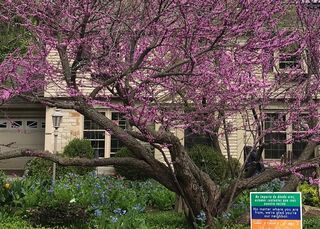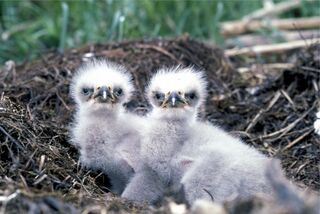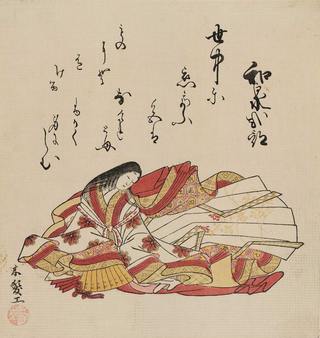Deception
Landscaping Our Own Garden: Cultivating Your Essential Self
Using metaphor for discovery. What are you growing in your garden?
Posted April 30, 2021 Reviewed by Davia Sills

It’s spring. City and land dwellers are out and about, faces raised to sunshine and newly leafed trees. The pandemic’s brutal onslaught, if not quite over, is less severe. The gardeners among us have spent the long winter months studying nursery catalogs, fantasizing about what we will plant in the coming season.
My own yard has undergone several incarnations. When our children were small and willing to pick and can, we grew apples and plums, asparagus, tomatoes, and rhubarb. As the kids grew older and weary of those tasks, the yard morphed, as did my family.
Along with the children, my husband and I were undergoing our own transformation. These were our quasi-hippie days when we happily foraged in forests and ate wild plants. (The main lesson about most plants was that if you boiled them a dozen times, doused them with butter, and ate them, you would not die.) Our yard became a glorious wilderness of prairie flowers and grasses, a colorful sanctuary for butterflies and bees.
Now our lawn has terraced slopes and the gentle woodland feel of an English country garden. Gardens are a metaphor for many things, and one aspect we can explore is how they relate to our inner gardens. What nutrients are missing from the soil? What seeds do we wish to cultivate? Which are the volunteer plants and invasive species that pop up unexpectedly, and which are weeds that must be dug out by the roots?

When we bought our house, we inherited Mr. Peterson’s formal gardens: pruned conifers, symmetrical beds of imported tulips and peonies, exotic roses that required infinite care. My taste and garden ambitions did not match his.
In the same way, we inherit seeds from our parents, genetic markers, along with more subtle influences—propensities, inclinations, predispositions—and what some might call ancestral threads.
But we also come into life with our own essence, our own karma or destiny, if those words fit your worldview. Recognizing who we are as particular souls and living out our authentic lives constitute the great lifetime work of becoming whole, becoming a self.
The great depth psychologist Carl Jung called this process “individuation” and saw it as a cornerstone to his psychology of self-realization, “the discovery and experience of meaning and purpose in life.”
In Awakening the Soul: A Deep Response to a Troubled World, Michael Meade, a storyteller and scholar of mythology, describes the process of becoming a self in slightly different terms:
“As fingerprints as well as footprints have always implied, human life exists in the particular, in the distinctive shape of the unique individual who bears an original soul within. Because each soul is by nature distinct from all others, it is each person’s singular way of seeing and being that is ultimately at issue. Because each person born is a unique being, to truly “be” means to be as oneself, to act in authentic ways.... Typically, the dilemma of who we are is solved in too narrow a way. We limit ourselves to prescriptions of what others consider attainable and renounce the hidden potentials that our souls hint at all along.”

Like all mammals, human offspring must learn to fend for themselves. When the time is right, mama leopards walk away from their cubs. Eaglets must learn to fly and catch fish on the wing. Hatchlings eventually build their own nests.
Becoming independent from our families is something we do naturally. Becoming an individual requires something more: not only separation but knowing yourself. Knowing your tastes, values, fears, and desires. Knowing exactly what you want growing in your garden.
In today’s world, we are mightily swayed by social media. Influencers of all kinds barrage us with how we should dress, how we should fix our eyebrows, our hair. What we should listen to, what we should read, who we should or should not befriend. We are even being encouraged to ignore our own perceptions and accept truth as others see and experience it.
How difficult, under these conditions, to sort out your own feelings and impressions from the mass of leadspeakerish pronouncements of shoulds and should nots. More reason to sit quietly with yourself, feel the rhythm of your breathing, the rise and fall of your belly, the pulse in your neck. This is you, your body, the vehicle and vessel of your soul on Earth.
Why do you think you are here? What is your purpose in this lifetime? Do you feel connected to a larger, cosmic order? If not, how might you remedy that? Approach the still small voice within with patience and openness. Trust that answers are waiting to reveal themselves.

Poetry can be your friend in quieting your mind. Poetry enlivens our attention to the particular and the specific. It opens the windows of our perceptions and provokes curiosity about our inward voice in dialogue with the outward world.
Here is a poem by Izumi Shikibu, a renowned poet of the Japanese classical period. The speaker allows us to experience an intimate feeling and moment in her life. It is particular to her, but it is also a universal experience. What would you name as one of your longings?
Lying alone,
my black hair tangled,
uncombed,
I long for the one
who touched it first.From The Ink Dark Moon: Love Poems by Ono no Komachi and Izumi Shikibu, Women of the Ancient Court of Japan, translated by Jane Hirshfield and Mariko Aratani.




